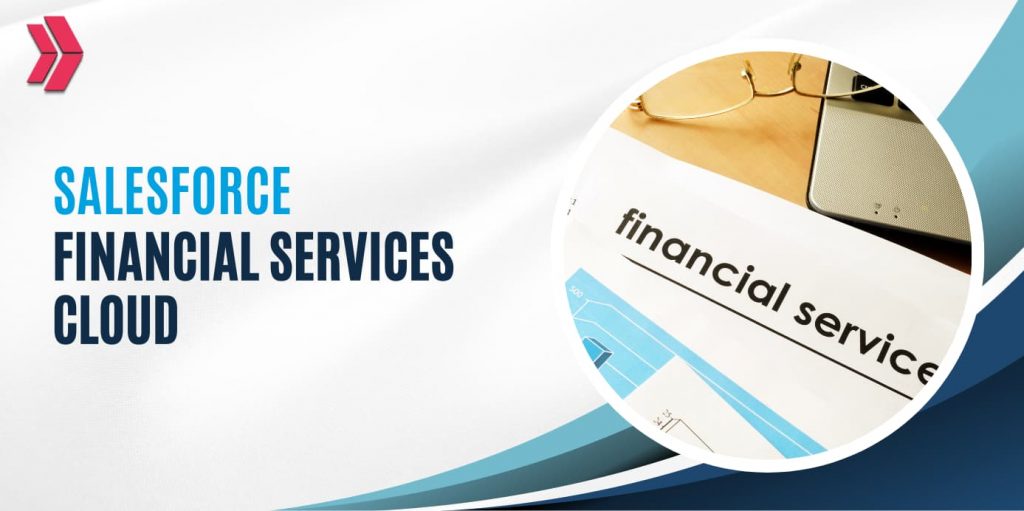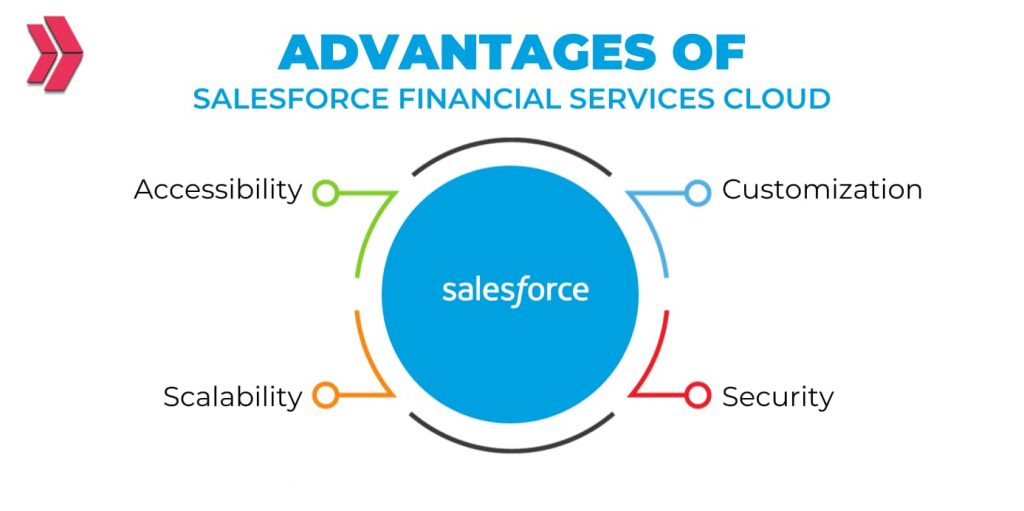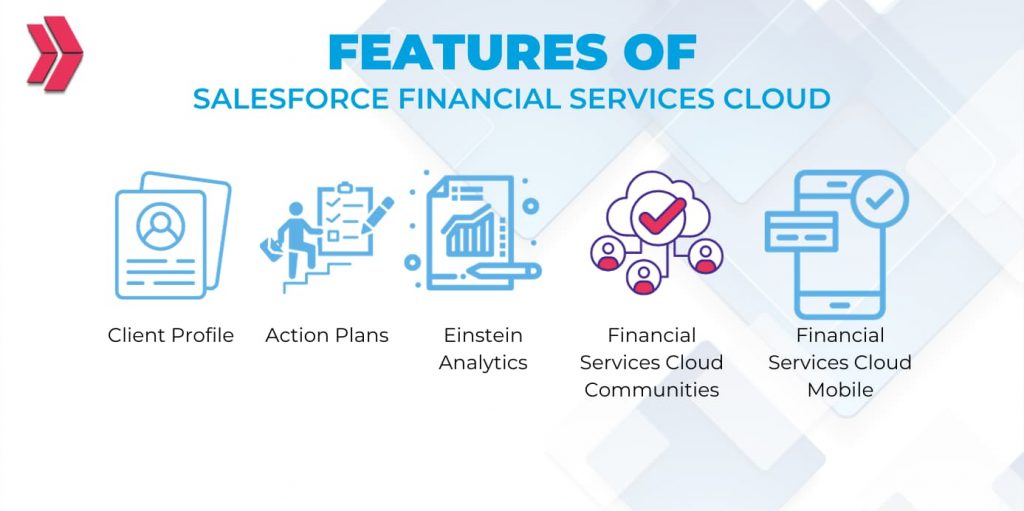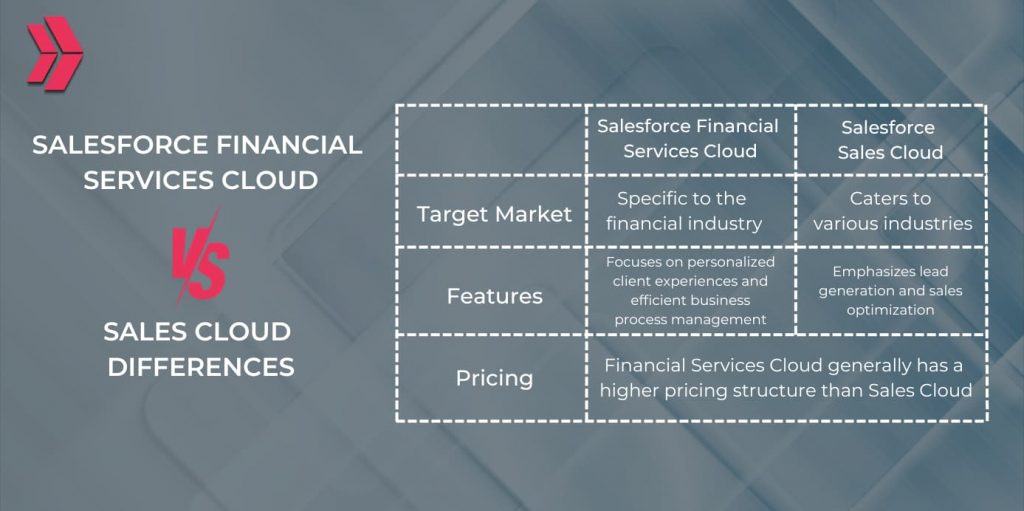Salesforce Financial Services Cloud is pivotal for those aiming to understand and navigate the future of the financial services industry. In the digital era, challenges like evolving customer expectations, complex regulations, and intense competition are prominent. Financial institutions must harness their data for success, necessitating tools like Salesforce Financial Services Cloud. Ranked as a leader in The Forrester Wave’s Q3 2023 report, this article delves into its features, advantages, pricing, and certification.

What is Salesforce Financial Services Cloud?
Salesforce Financial Services Cloud is a term you should get acquainted with if you’re looking to learn, understand, and prepare for the future of the financial services industry.
- Definition: A cloud-based CRM solution tailored for the financial industry, leveraging Salesforce Platform’s capabilities.
- Functionality: Provides a comprehensive view of clients’ financial objectives, accounts, transactions, etc., integrates with external data sources, and offers real-time insights, automation, and regulatory compliance.
Why Should Financial Institutions Adopt Salesforce Financial Services Cloud?
The financial industry faces many challenges in the digital age, such as changing customer expectations, complex regulations, and fierce competition. Financial institutions need to learn from their data to succeed in this environment, understand their customers, and prepare for the future. That’s why they need Salesforce Financial Services Cloud.
How Does Salesforce Financial Services Cloud Benefit Financial Professionals?
The Forrester Wave’s report for the third quarter of 2023 ranks Salesforce Financial Services CRM as the leader. Financial Services Cloud Salesforce suits various financial institutions and professionals, such as banks, credit unions, insurance companies, wealth management firms, financial advisors, brokers, agents, and more.
- Beneficiaries: Banks, credit unions, insurance companies, wealth management firms, financial advisors, brokers, agents, etc.
- Benefits:
- Enhance client retention through personalized services.
- Increase revenue by cross-selling and upselling.
- Reduce costs and risks by streamlining operations.
- Innovate using advanced technologies within the Salesforce ecosystem.
What are the Advantages of Salesforce Financial Services Cloud?
Salesforce Financial Services Cloud offers many benefits over traditional CRM solutions for the financial industry. The main advantages are its cloud-based nature, scalability, customization options, and robust security measures.
Here are the advantages of salesforce financial services cloud;
- Accessibility: Cloud-based, accessible anytime, anywhere.
- Scalability: Expands with business needs, allowing new features.
- Customization: Adaptable to company processes and app integration.
- Security: High-level data protection and privacy measures.

What Specific Features Does Salesforce Financial Services Cloud Offer?
Salesforce Financial Services Cloud’s robust features make it an ideal tool for the financial industry. Key features include Client Profile, Action Plans, Einstein Analytics, Financial Services Cloud Communities, and Financial Services Cloud Mobile.
Here are the specific features of salesforce financial services cloud;
- Client Profile: Comprehensive view of client information.
- Action Plans: Task and workflow management.
- Einstein Analytics: Real-time data and insights.
- Financial Services Cloud Communities: Online portals for collaboration.
- Financial Services Cloud Mobile: Mobile access and management.

How is Salesforce Financial Services Cloud Different from Sales Cloud?
Salesforce Financial Services Cloud and Sales Cloud are both CRM solutions that help you manage your customer relationships and grow your business. However, their distinct features and focus areas cater to different industry needs.
Here are the difference between salesforce financial services cloud and sales cloud;
- Target Market: Financial Services Cloud is specific to the financial industry, while Salesforce Sales Cloud caters to various industries.
- Features: Financial Services Cloud focuses on personalized client experiences and efficient business process management, whereas Sales Cloud emphasizes lead generation and sales optimization.
- Pricing: Financial Services Cloud generally has a higher pricing structure than Sales Cloud.

What is the Pricing Structure of Salesforce Financial Services Cloud?
Understanding the pricing of Salesforce Financial Services Cloud is crucial for businesses considering its implementation. The platform offers various editions and add-ons to suit different business needs and scales.
Here is the pricing structure of salesforce financial services cloud;
| Financial Services Cloud – Sales | Financial Services Cloud – Service | Financial Services Cloud – Sales & Service | |||
| Enterprise Edition | Unlimited Edition | Enterprise Edition | Unlimited Edition | Enterprise Edition | Unlimited Edition |
| $300 | $475 | $300 | $475 | $325 | $500 |
How Can One Become Salesforce Financial Services Cloud Certified?
To get Salesforce Financial Services Cloud certification, one must pass an exam that covers comprehensive industry-specific topics. This certification demonstrates a professional’s ability to utilize Salesforce Financial Services Cloud effectively.
- Exam Details: 60 multiple-choice questions in 105 minutes, 65% passing score, $200 exam fee, $100 retake fee.
- Preparation: Utilize Salesforce documentation, Trailhead modules, and the Salesforce Certification Guide.
What Learning Resources are Available for Salesforce Financial Services Cloud?
For those looking to master Salesforce Financial Services Cloud, numerous resources are available. On this subject, salesforce training resources are including Salesforce documentation, Trailhead modules, and Salesforce Bootcamp Training.
Here are the learning resources for salesforce financial services cloud;
- Salesforce Documentation and Trailhead: In-depth guidance and interactive learning.
- Salesforce Bootcamp Training: Online and instructor-led courses.
- Salesforce Community: Forums, blogs, and networking opportunities.
- Salesforce Partner Network: Implementation and consulting support.




